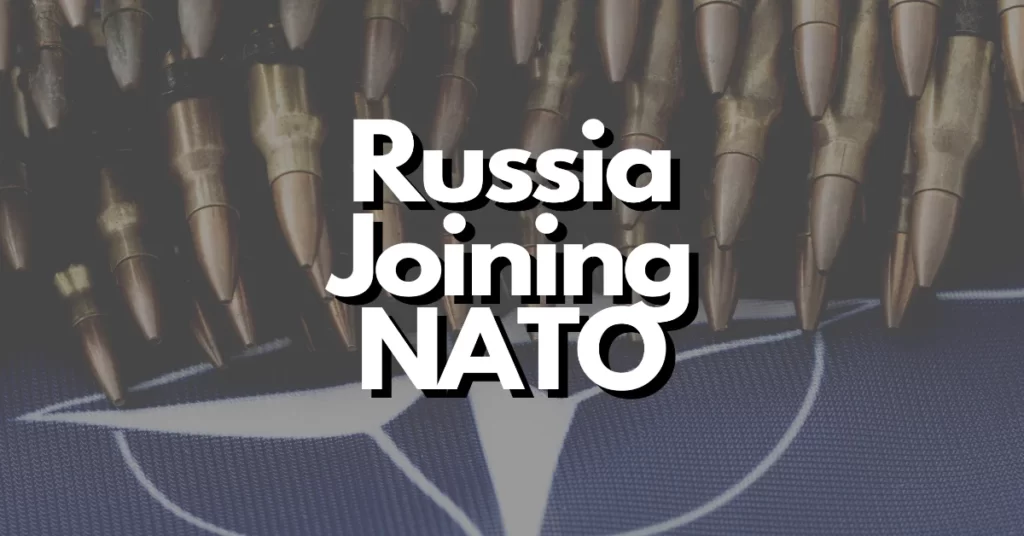The issue of Russia’s potential membership in NATO has been a topic of debate and discussion among international policymakers and experts. With Russia’s geopolitical significance and history of relations with NATO, the question of whether Russia should join NATO is complex and multifaceted.
In this blog post, we will explore the arguments for and against Russia’s membership in NATO, considering the potential benefits, challenges, and implications of such a move.
Historical context and implications of Russia joining NATO
The idea of Russia joining NATO, the North Atlantic Treaty Organization, has been a topic of discussion and debate with potential historical implications. NATO was established in 1949 as a military alliance of North American and European countries aimed at collective defense and security against common threats.
During the Cold War era, NATO served as a counterbalance to the Soviet Union and its Eastern European allies, including Russia.
The idea of Russia joining NATO has historical significance due to the complex relationship between Russia and NATO member states. Russia has expressed concerns about NATO’s eastward expansion after the dissolution of the Soviet Union, viewing it as a threat to its national security and interests.
However, there have been discussions and initiatives over the years to improve Russia-NATO relations, including the NATO-Russia Council established in 2002, aimed at promoting dialogue, cooperation, and transparency between the two parties.
Current geopolitical considerations in relation to Russia’s potential NATO membership
In recent years, there have been geopolitical considerations and discussions about the potential membership of Russia in NATO. The relationship between Russia and NATO has been strained due to various factors, including differences on issues such as Ukraine, NATO’s military exercises and deployments in Eastern Europe, and perceptions of NATO’s intentions towards Russia.
From NATO’s perspective, there are concerns about Russia’s actions, including its annexation of Crimea, its military interventions in Georgia and Ukraine, and its assertive posture in Eastern Europe.
NATO member states have differing views on Russia’s potential membership, with some advocating for increased engagement and dialogue, while others express skepticism and concerns about Russia’s intentions.
Arguments for Russia joining NATO
Proponents of Russia joining NATO argue that it could contribute to improved relations between Russia and NATO member states. They argue that NATO membership could promote greater cooperation, trust, and transparency between Russia and NATO, leading to enhanced security and stability in the Euro-Atlantic region.
They believe that it could provide a framework for addressing mutual security concerns, resolving conflicts through diplomatic means, and fostering greater understanding and collaboration between Russia and NATO
Arguments against Russia’s membership in NATO
Opponents of Russia joining NATO express concerns about the implications of such a move. They argue that Russia’s actions, including its military interventions in neighboring countries, its assertive posture, and its violation of international law, raise questions about its adherence to democratic principles and shared values of NATO.
They express concerns about Russia’s potential influence within NATO decision-making processes and the potential security risks associated with incorporating a country with a history of adversarial relations with NATO member states.
Likelihood of Russia’s inclusion in NATO
The likelihood of Russia’s inclusion in NATO remains uncertain and is subject to various factors, including geopolitical dynamics, bilateral relations, and mutual interests. While there have been discussions and initiatives aimed at improving Russia-NATO relations, there are significant challenges and differences that need to be addressed.
NATO member states have differing views on this issue, and there are concerns and considerations on both sides. The process of Russia joining NATO would require consensus among NATO member states, and it remains to be seen how this issue will evolve in the future.
Conclusion
In conclusion, the question of whether Russia should join NATO is a complex and contentious issue with no easy answers. While there may be arguments on both sides, the decision to admit Russia into NATO would have far-reaching consequences for the alliance and international security.
As policymakers and leaders continue to grapple with this issue, careful consideration of the potential risks, benefits, and implications is essential.

